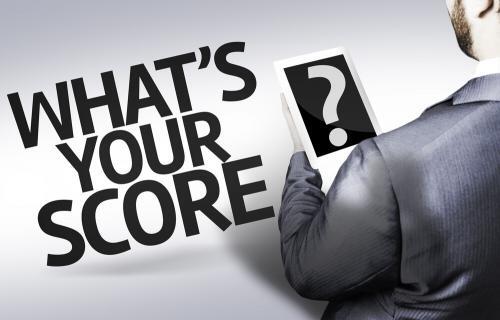 It’s a good idea to know where you stand in the eyes of creditors before applying for a new credit card or any other type of credit.
It’s a good idea to know where you stand in the eyes of creditors before applying for a new credit card or any other type of credit.
Your credit score is the three-digit number that uses information in your credit report to summarize your credit risk. Credit scores range from 300 to 850 and higher is better.
Your credit score is a big factor in whether you’ll have to pay an annual fee, what annual percentage rate (APR) will apply to your balance, or whether creditors will grant you credit at all.
Knowing your credit score before you apply for a credit card will enable you to have realistic expectations in terms of interest rates, annual fees, and perks like miles and other rewards.
There are three main credit bureaus in the U.S.: Equifax, Experian, and TransUnion. While all credit scores on based on the FICO scoring model, each credit bureau uses their own scoring method to compute your credit score. Your credit score may differ slightly with each bureau. Also, your past and present creditors may report your credit history to one, two, or all three of the bureaus, so each bureau may not have your complete credit history in their records.
Keep in mind that your credit score will also fluctuate depending on the balances on your accounts (lower balance equals higher score), how long those accounts have been open, the number of credit inquiries on your credit report, and your history of on-time payments.
Knowing your credit score is the first step in understanding how creditors see you as a credit risk. Also, seeing the number in black-and-white can serve as reassurance that you are making good credit choices, or it can serve as a wake-up call to straighten up your finances.
You may also want to read “How To Get Your Credit Score”

I would’nt think so, if your work is paying the bill then they would cover any other chgears.Passport is all you need to check in.Just check at work , it’s not a crime not to have a credit card ; )
Suspriring to think of something like that